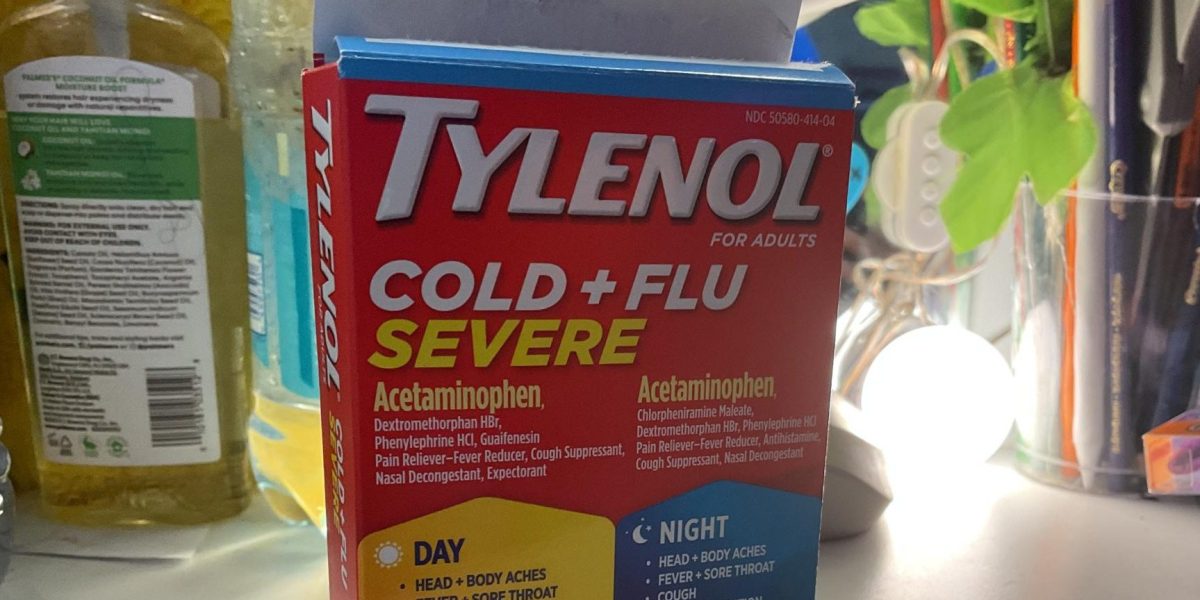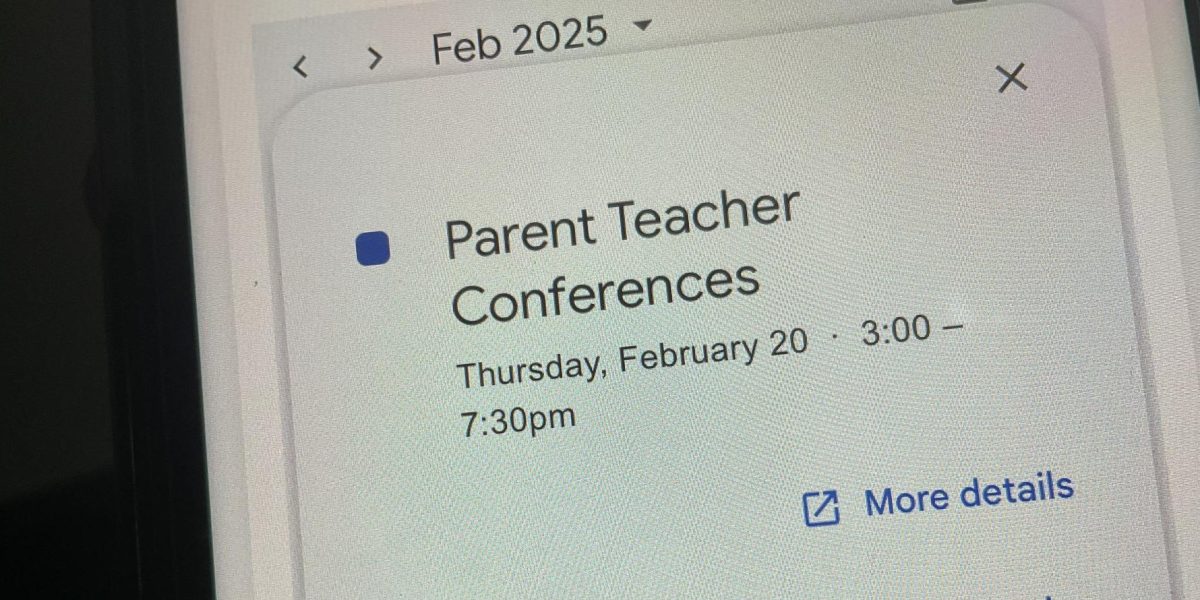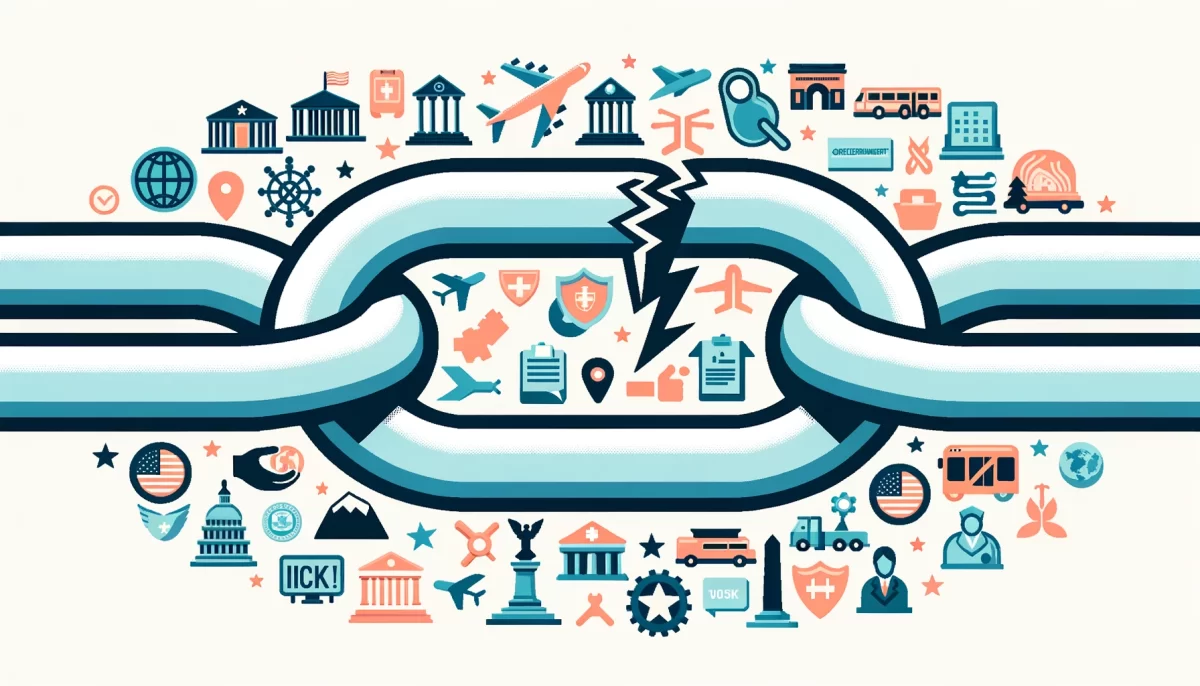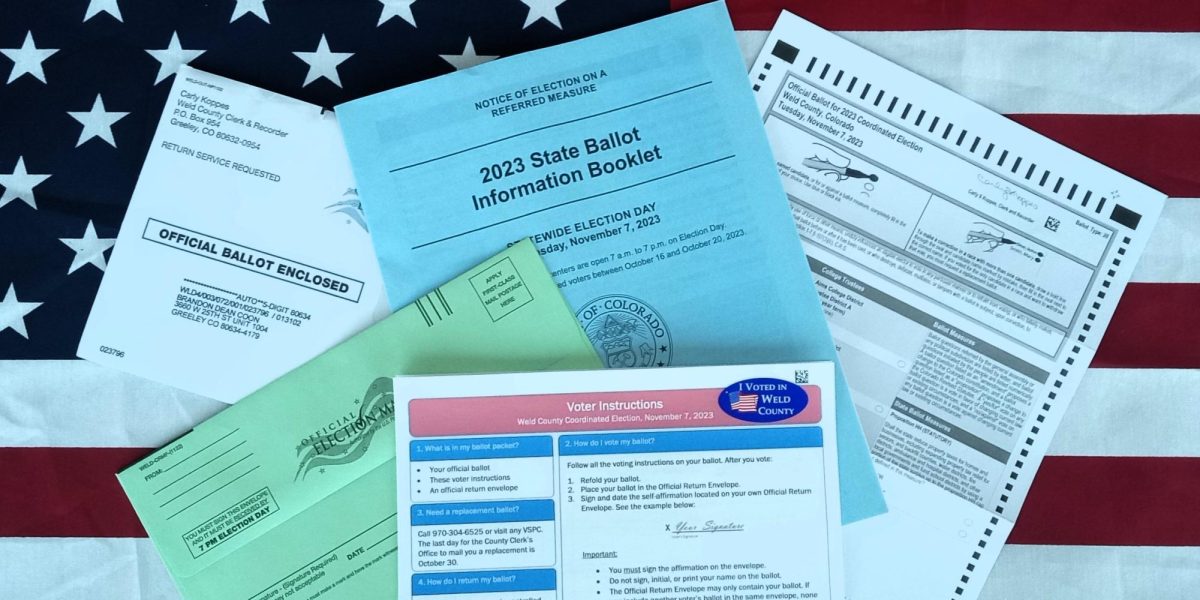Tomorrow at 12:01 a.m., the US government may shut down.
After passing a last-minute continuing resolution to keep the government funded on September 30, Congress must now pass new spending bills or another continuing resolution before Friday, November 17. If they don’t, the federal government will shut down, affecting tens of thousands of Coloradans.
This is not a new threat: in fact, this article is an update of an article we put out last year by writer Julian Finch where he recapped the threat of a 2023 government shutdown. There have been twenty government shutdowns in the nation’s history, but the threat of shutdown has become a regular political reality in our very divided government. Unlike the last couple years, however, this shutdown looks like it will happen, which adds a bid of a cloud over the holiday season.
What are Government Shutdowns?
A government shutdown is exactly what it sounds like: it’s when the federal government halts most of its activity. The reason why shutdowns occur is simple: the government runs out of funding, so its various agencies close their offices because they can no longer pay their staff.
This doesn’t mean the government has no money—it just no longer has permission to spend the money it has. The government requires a yearly renewal of the laws that fund it, which are known as appropriations bills. Every year, both chambers of Congress must renew twelve different appropriation bills before October 1 (the start of the government’s new fiscal year) so that the government can continue to be funded.
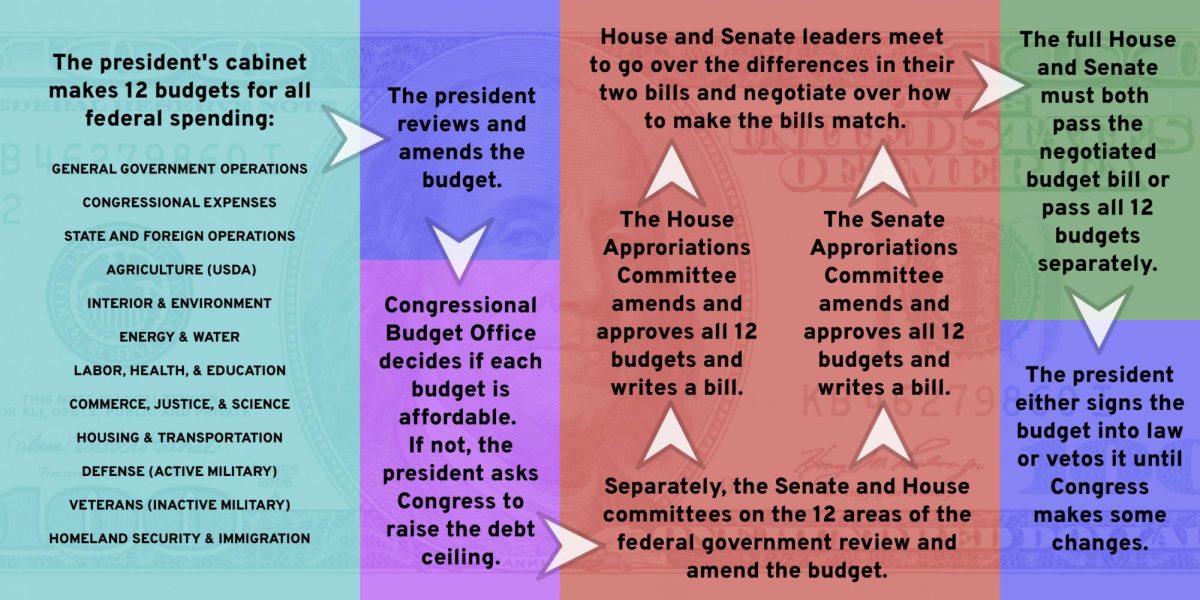
The current issue is that Congress hasn’t passed those bills yet. Minutes before the midnight deadline that, if missed, would shut down the government, Congress passed a bipartisan Continuing Resolution (CR) to fund the government until December 20—today. The purpose of the CR is to extend the funding deadline, which in this case was done to delay budget decisions until after the November election.
What Happens During a Government Shutdown?
To avoid a government shutdown, Congress must either pass all twelve appropriation bills or another CR to further delay the funding deadline.
If Congress is unable to do this, a shutdown will occur at the stroke of midnight and almost every person, place, or program that is funded by the federal government will stop immediately. Thousands of government employees will be furloughed, meaning that will keep their jobs but will stop working and stop receiving pay during the shutdown. Essential services will continue running—American soldiers will keep their posts and federal prisons will still be guarded—but these working employees will not be paid for their work until after the government is funded again.
Note that this is a federal shutdown. Colorado’s state and local governments will continue to function (so while a shutdown would start during break, coming back to school wouldn’t be delayed is a shutdown continued into January). Focusing on just our state, here’s what to expect during a shutdown:
The Unaffected
All state-funded entities will still operate, including the Department of Motor Vehicles (DMV) and Colorado permit offices.
The United States Postal Service (USPS) and all of its workers will also be unaffected because the post office is self-funded and doesn’t receive any taxpayer money.
Unless the shutdown is prolonged for more than a month, Coloradans who receive federal assistance from Social Security, Medicare, Medicaid, TANF, and SNAP will still receive their benefits because these programs are partially funded by state funds.
The Back Paid
The federal employees who will still work without pay are mostly those in charge of citizen safety. This includes the federal workers at DIA and other airports, including air traffic controllers, Homeland Security officers, and customs officials. While these employees are still required to work during a shutdown, around 10% use accured sick leave to not show up to work their payless shift, which will doublessly increase holiday travel delays.
Federal law enforcement agents will also continue working without pay, and federal courts like the 10th Circuit Court of Appeals in Denver will continue operations for two weeks (not counting the upcoming federal holidays of Christmas and New Year’s Day) before their employees are furloughed.
Employees in federal prisons like ADX Florence outside of Canon City and federal hospitals will also keep working without pay.
The 36,400 active duty personnel at Colorado’s military bases will continue working without pay, as will the US Border Patrol and Secret Service.
The IRS will still conduct audits in Colorado during a shutdown.
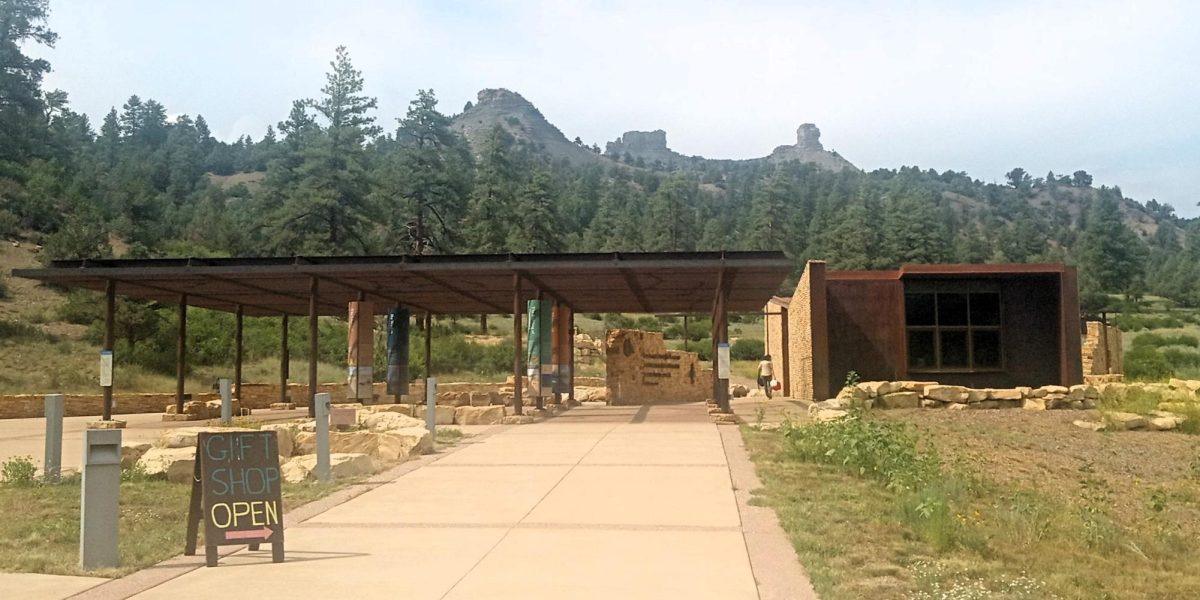
The Furloughed
As soon as a shutdown occurs, Colorado’s four national parks, five national monuments, two national historic sites, and four historic trails and recreation areas will close, though Colorado Governor Jared Polis has been working with the state General Assembly to keep these federal lands funded during a potential shutdown.
As many as 39,800 other federal employees and contractors working in Colorado could be furloughed—worse, these contractors could lose funding for their government projects and never return to work after the shutdown is over.
Federal agencies that would suspend or delay inspections in Colorado are the FDA, EPA, USDA, and OSHA, meaning that Coloradans have a higher risk of encountering widespread food poisoning like the McDonald’s e-coli outbreak earlier this year, workplace accidents, and ecological disasters.
If one of those ecological disasters grows to a large-scale catastrophe—like the 2021 Marshall Fire or 2015 contamination of the Animas River—Colorado will have little to no relief funds from FEMA. On this front, Colorado is in a better position than states like North Carolina and Florida, whose current funds to rebuild thier communities after the devestation wrought by Hurricane Helene in September.
For seniors heading to college next fall, you can still apply for FAFSA during the shutdown, but your application will not be processed until after the shutdown ends nor will their helpline be available. Federal loans and PELL grants will still be available too, as these programs already have their funding, but applications for this aid will also not be processed. However, your parents and older siblings will still be required to pay their student loans during a shutdown.
Why Can’t Congress Get the Government Funded?
Elon Musk. No, really.

With so much political divison around appropriations bills, Republicans were willing to pass a CR that would fund the government until mid-March after Donald Trump and the 119th Congress take power in January. Currently, Republicans only control the House and face challenges to any budget cuts in the Senate and the White House.
Several Republicans also wanted to add spending to the budget, including over $100 billion in disaster aid to help rebuild communities after the devestation from Hurricanes Milton and Helene and $31 billion in disaster relief and economic assistance for farmers (not to mention giving Congress a 3.8% cost of living raise). Most of these spending moves had bipartisan support, but since increasing spending is not very popular among voters, Republicans would rather have Biden sign the budget bill that adds these costs to the national debt instead of Trump.
Then on Wednesday, December 18, South African immigrant Elon Musk used his social media company X to tell his supporters that the CR should not pass. He spread several falsehoods, such as that the bill gave billions of dollars to Ukraine (it gives no money to Ukraine, that the potential Congressional pay raise is 40% and that it would pay for a new football stadium for the Washington Commanders (in reality, the bill would allow Washington, D.C. to take administrative control over an existing stadium in the district so the Commanders can stop playing their home games in Maryland).
One of his posts became a rallying cry for president-elect Trump and many of his house supporters: “No bills should be passed Congress until Jan 20, when @realDonaldTrump takes office. None. Zero.”
At the urging of Musk, Trump worked with House Speaker Mike Johnson to craft a new CR in place of the bipartisan one that was set to be passed. The new bill kept the Republican-supported funding for disaster relief and farmers but cut billions in healthcare spending (including $190 million for children’s cancer research), revoked Congress’ raise, dropped new regulations for how US businesses can work with Chinese companies, removed new regulations against hotels and ticketing services from charging customers hidden fees, and most controversally eliminated the debt ceiling until January 2027, which would allow Trump to authorize as much spending as he wants without Congressional approval. Trump immediately supported the new bill.
But Congress didn’t: every Democrat and 38 Republicans voted against the new CR, 174-235.
Why did the CR get shot down? Democrats are furious that their bipartisan bill was torpedoed by a private billionaire “puppetmaster” and do not want to give Trump two years of unlimited spending power, citing how he added $8.4 trillion to the national debt in his first term and is estimated to add another $7.5 trillion if his promised legislation for his second term becomes law.
Several Republicans, including Doug Lamborn (CO-5) and Greg Lopez (CO-4), that voted against the new bill share the Democrats’ aversion to an unlimited debt ceiling while others share the sentiment of Musk’s aforementioned post: they don’t want to see any legislation passed until Trump is in office, even if Trump himself supports the legislation.
Even if the bill had passed the House, Chuck Schumer said the Democratic-controlled Senate would only pass the original budget bill. The office of the President also said that Republicans should pass the original deal, though President Biden himself is staying out of the conflict (instead, he’s been busy selling off unused parts of the border wall). Trump, for his part, is blaming Biden entirely for the impending shutdown.
So What Happens Next?
Johnson can push another vote on his and Trump’s narrower bill again (or a new revision of it), though there is no indication that it would be any more likely to pass with solid Democratic opposition. Given how little time there is before the budget expires, this move would very likely lead to a shutdown.
Johnson could also broker a deal with the Democrats, reintroduce the previously-agreeed upon bill that was lambasted by Trump and Musk, and have that bill pass. Since the Senate and White House have indicated that they favor that bill, it would be signed into law at the last minute and the shutdown would be averted.
However, Johnson is likely not to do this because the last time the government faced a shutdown and the Republican Speaker of the House made a deal with Democrats, said speaker Kevin McCarthy was voted out of his role by a hndful of angry conservatives and the entire Democratic caucus. With McCarthy already facing a new speaker vote in two weeks when the 119th Congress starts its session and the slimist House majority in American history, a deal with the Dems would likely sink his chances at re-election and throw the House into even more chaos. After the last speaker vacancy, it took conservatives 21 days to elect a new House Speaker.
This would be a good thing for Democrats, who would only need to sway two Republicans to vote for Democratic House Minority Leader Hakeem Jefferies to take control of the chamber, even temporarily. While a shutdown may hurt Biden’s popularity, there would be no real pressure for him to sign a bill to end the shutdown that he doesn’t like because he has exactly one month left as president. As a lame duck, Biden’s been doing whatever is in his power to frustrate the upcoming Trump administration regardless of public opinion (like banning menthol cigarettes, pardoning his son, and again, selling off materials the Trump administration wanted to use for the US-Mexico border wall).
A shutdown would also start the next Trump administration on the wrong foot and lead to voter backlash. While Musk promises his followers that government shutdowns are no big deal, the previous shutdown in 2018 during Trump’s first term cost the US economy $11 billion dollars, with $3 billion of that unrecoverable. And that was only a partial governemnt shutdown, as national parks remained open with skeleton staff and the military still received pay. A total shutdown during the holiday season would cost the US economy and estimated $6 billion per week.
Meanwhile, Trump and his followers have said that they will not negotiate on any bill that doesn’t remove the debt ceiling. Since Trump needs the debt ceiling raised to put most of his policies in place and increasing America’s debt is not popular, he likes the optics of Biden signing off on the debt ceiling removal so he doesn’t have to take the political hit. Trump is even threatening to primary some Republicans that are not backing his plan and is likely to turn on Mike Johnson if he puts forward any bill that leaves the debt ceiling intact. Some Republican Congressmembers are even calling for Musk, who has never held public office, to be elected as Speaker of the House over Johnson.
With no side making any move to comprimise, a shutdown seems inevitable, and it may last until Republicans take over every branch of government on January 20. Until then, it may be a long month ahead.

